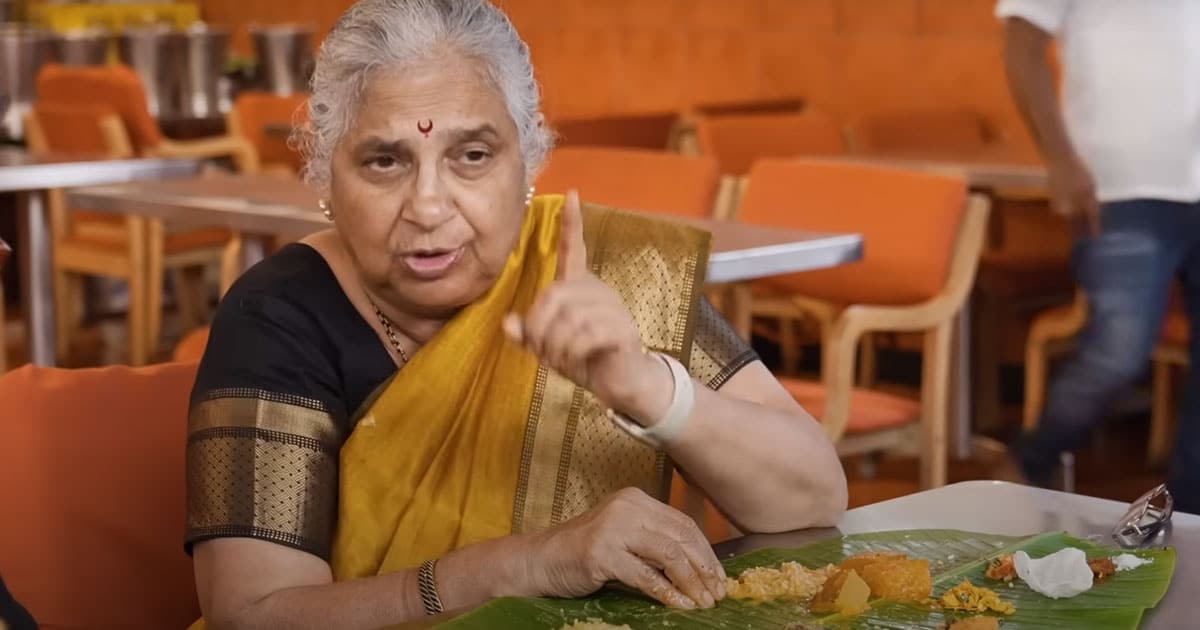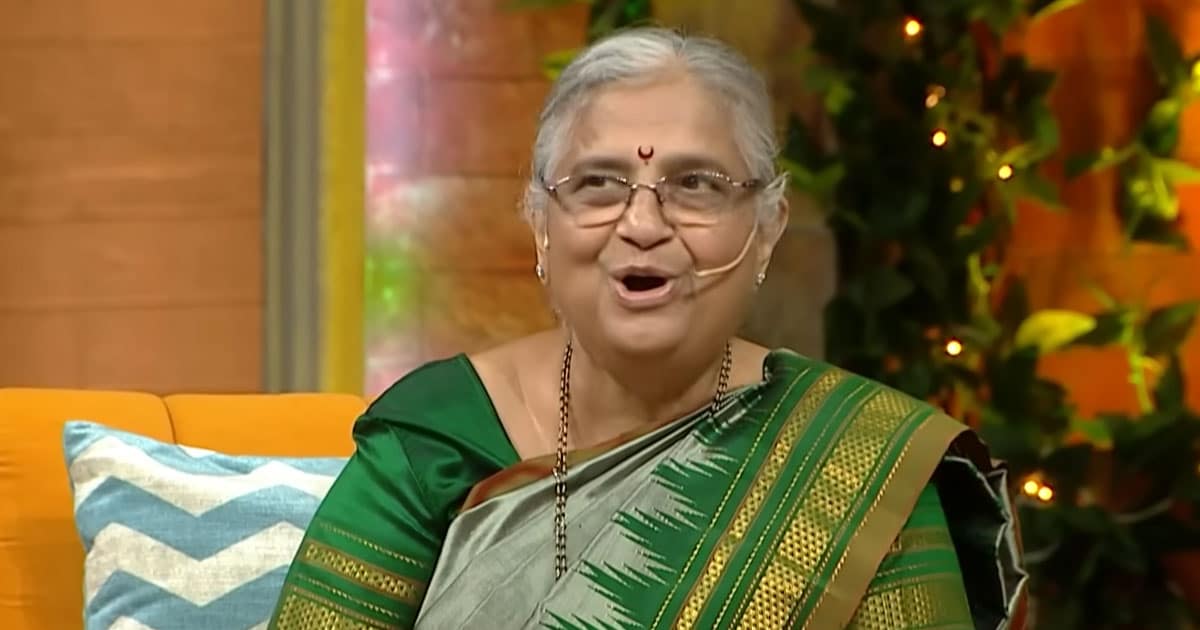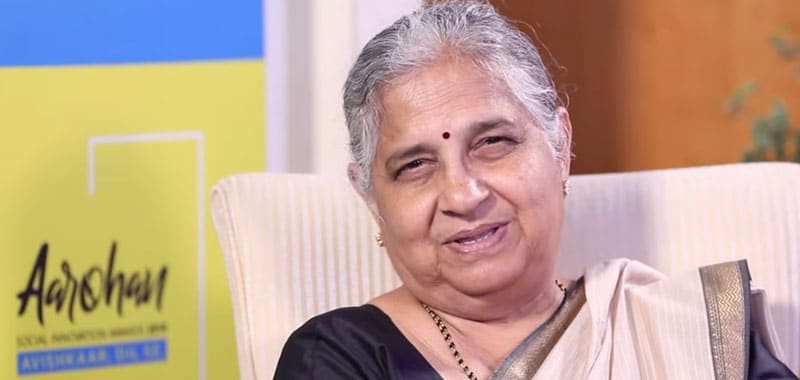Recently, a seemingly innocuous statement by Sudha Murthy, renowned author, philanthropist, and educator, about her food preferences has sparked a heated debate on social media. Murthy’s revelation that she is a “pure vegetarian” and her concern about using the same spoon for vegetarian and non-vegetarian dishes has led to a flurry of opinions and discussions.
This controversy has highlighted the intersection of vegetarianism, caste, and societal perceptions in India. In this article, we will delve into the details of the controversy, examining various perspectives and shedding light on the underlying issues.

The Controversial Statement
During a conversation on a popular chat show hosted by Kunal Vijayakar, Sudha Murthy candidly expressed her dietary choices. She stated that she is a “pure vegetarian” and abstains from consuming not only meat but also garlic and eggs.
Sudha Murthy further revealed that when she travels, she either searches for vegetarian restaurants or carries her food to avoid any potential mixing of vegetarian and non-vegetarian items.
While her comments may seem innocuous, they have sparked a maelstrom of reactions on social media.
The Backlash and Accusations
Unsurprisingly, Sudha Murthy’s statement ignited a barrage of criticism and accusations, particularly on Twitter. Some individuals labeled her dietary preferences as “casteist,” suggesting that her emphasis on being a “pure vegetarian” stems from upper-caste Brahminical sensibilities and notions of purity associated with the caste system. They argued that her choice to carry her food and the fear of contaminated utensils with non-vegetarian food perpetuates caste-based discrimination.
One Twitter user even juxtaposed images of Sudha Murthy with her son-in-law, British Prime Minister Rishi Sunak, carrying plates of cooked meat, insinuating hypocrisy in her vegetarianism.
The criticisms and accusations surprised many in a country where a significant portion of the population identifies as vegetarian. However, some supporters defended Murthy’s right to make her own dietary choices.
Personal Choices and Preferences
Sudha Murthy’s insistence on carrying her food and her aversion to sharing utensils with non-vegetarian dishes can be understood from a personal perspective. Many individuals, regardless of caste or background, have unique preferences and sensitivities regarding food. Upbringing, cultural influences, and personal experiences shape these preferences.
It is not uncommon for individuals, even those who are not vegetarians, to have certain aversions or discomforts regarding specific foods or their preparation. These preferences are deeply personal and should be respected without jumping to conclusions or ascribing casteist motives.
Moving Towards Understanding and Respect
Rather than fueling polarization and engaging in divisive debates, fostering understanding and respect for diverse dietary choices is important. Each individual’s food preferences are shaped by a multitude of factors, including culture, religion, health considerations, and personal beliefs.
By recognizing the complexities of vegetarianism and refraining from generalizations, we can promote a more inclusive and tolerant society. Engaging in constructive conversations that bridge the gaps between different perspectives and foster empathy is essential, rather than perpetuating stereotypes and animosity.
The controversy surrounding Sudha Murthy’s vegetarianism has brought forth important discussions about the intersection of dietary choices, caste, and societal perceptions in India. While strong opinions and criticisms have emerged, it is crucial to approach these debates with nuance, understanding, and respect.
Whether rooted in religious beliefs, personal preferences, or ethical considerations, vegetarianism should be acknowledged as a personal choice rather than a reflection of caste superiority or prejudice. By embracing diversity and engaging in open dialogue, we can collectively move towards a more inclusive and harmonious society where individuals’ dietary choices are respected without judgment or prejudice.



